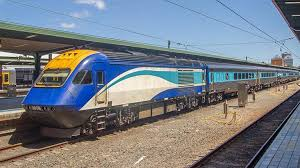New 'mobile' defibrillators coming
Luke Williams
10 May 2023, 3:40 AM
 Emergency devices for people on the move
Emergency devices for people on the moveAccess to potentially life-saving defibrillators looks set to be on the increase in the region and beyond.
A defibrillator is a device that uses electricity to re-start the heart or shock it back into its correct rhythm.
It is used when someone has a sudden cardiac arrest - that is when the heart stops pumping.The defibrillator analyses the heart rhythm and us able to determine whether an electric shock is needed.
Each year, more than 30,000 Australians suffer cardiac arrest. If it happens outside a hospital, their chances of surviving are slim - less than 1 in 10.
Giving the person immediate CPR and using an AED early on can greatly increase their chances of survival. The most important thing is to use the AED quickly
A new device that is small enough to fit in your handbags and could save the lives of those who experience cardiac arrest has recently been approved by the Therapeutic Goods Administration (TGA).
The CellAED defibrillator, which costs $350, has been developed over the past five years.
The compact device was developed bySkydive instructor Casey Donovan, who wanted to try and help stop people from experiencing the horror he went through when his partner, Sarah, suffered a sudden cardiac arrest while laying in bed.

Image: NSW Government.
It took seven paramedics and 40 minutes of CPR to save her life.
This mini defibrillator looks set to hit the market as more traditional versions of the potentially life-saving equipment is being installed on coaches across 53 NSW TrainLink routes to ensure safer journeys on long trips in remote areas.
Minister for Regional Transport and Roads Jenny Aitchison said a trial was being rolled out that will result in Automated External Defibrillators (AEDs) being installed on all TrainLink timetabled coaches servicing routes of more than four hours.
“Defibrillators save lives, it’s as simple as that, which is why this initiative is so important on NSW TrainLink coach services," Ms Aitchison said.
Chief Executive of NSW TrainLink Peter Allaway said placing defibrillators on coaches grew from an idea initiated internally by passionate staff.
"This trial specifically targets longer routes where there may be mobile black spots or emergency response times might take longer," Mr Allaway said.
"This will benefit coach customers, drivers, and rural and remote communities as a whole, providing even safer public transport."
Elliot Williams from St John Ambulance NSW said only small percentage of people survive an out-of-hospital cardiac arrest without CPR or a defibrillator being administered.
“Each year 30,000 people in Australia experience a sudden cardiac arrest. Currently only one in 10 survive,” Mr Williams said.
“In a cardiac arrest, seconds count. When administered quickly, early CPR and using a defibrillator can increase a person’s chances of survival by up to 70 per cent.”
Every year in Australia around 25,000 people die from sudden cardiac arrest.
Donovan and staff on our regional TrainLink services will be hoping to bring that number down.




